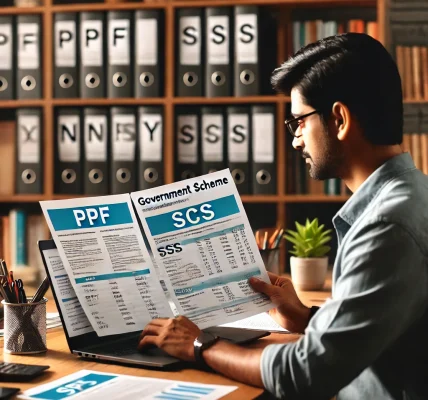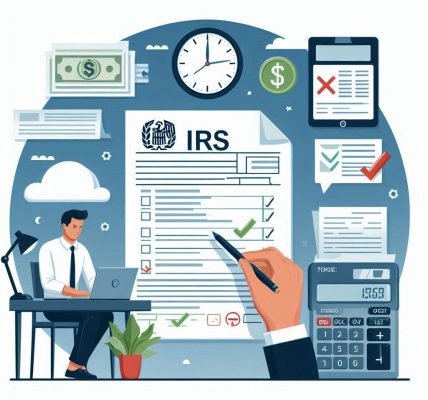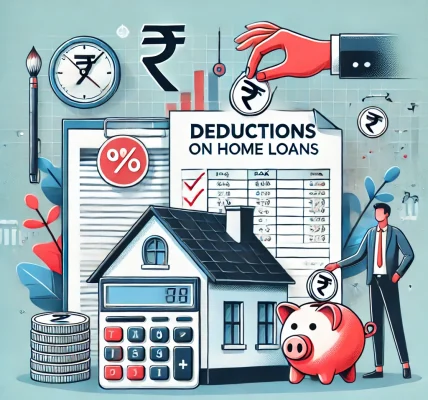Introduction
Many taxpayers in India find themselves in a situation where they are paying both house rent and home loan EMIs at the same time. The good news is that the Income Tax Act allows individuals to claim tax benefits for both House Rent Allowance (HRA) and home loan deductions simultaneously, provided they meet certain conditions.
This guide explains how to maximize tax savings by claiming both benefits legally while ensuring full compliance with tax laws.
1. Understanding HRA and Home Loan Tax Benefits
A. What is House Rent Allowance (HRA)?
HRA is a component of a salaried individual’s salary that helps them pay for rented accommodation. Tax benefits can be claimed under Section 10(13A) of the Income Tax Act if the person is living in a rented house and receiving HRA from their employer.
B. What are Home Loan Tax Benefits?
The government provides tax deductions on home loan repayments under different sections of the Income Tax Act:
- Section 80C: Deduction of up to ₹1.5 lakh per year on principal repayment.
- Section 24(b): Deduction of up to ₹2 lakh per year on home loan interest.
- Section 80EE & 80EEA: Additional deductions on home loan interest for first-time homebuyers.
2. Can You Claim Both HRA and Home Loan Tax Benefits?
Yes! You can claim tax benefits for both HRA and home loan EMIs under specific circumstances:
Scenario 1: You own a home but live in a rented house in another city
- If you have taken a home loan for a property in one city but are living in a rented house in another city due to work, you can claim:
- HRA for your rented accommodation.
- Home loan tax benefits for your owned house.
Scenario 2: You own a home in the same city but live in a rented house
- If you own a house but are staying in a rented house in the same city, you can claim both HRA and home loan benefits, but you must justify why you are not staying in your owned house. Valid reasons include:
- Your workplace is far from your owned house, making commuting difficult.
- Your family (spouse, parents, children) resides in your owned home while you live separately due to work.
- Your owned house is too small or unsuitable for living.
Scenario 3: Your owned house is under construction
- If your home loan property is under construction, you can claim HRA for your rented accommodation and defer home loan interest deductions until the construction is completed.
3. How to Calculate HRA Exemption?
HRA exemption is calculated as per the following formula:
HRA Exemption = Minimum of the following three amounts:
- Actual HRA received from your employer.
- 50% of basic salary (for metro cities) or 40% of basic salary (for non-metro cities).
- Actual rent paid – 10% of basic salary.
Example:
- Basic Salary: ₹50,000 per month
- HRA received: ₹20,000 per month
- Rent paid: ₹18,000 per month
- City: Metro (50% rule applies)
Calculation:
- 50% of ₹50,000 = ₹25,000
- Rent paid – 10% of basic = ₹18,000 – ₹5,000 = ₹13,000
- Minimum of ₹20,000, ₹25,000, and ₹13,000 = ₹13,000 per month (₹1,56,000 annually) exempt from tax
4. How to Claim Home Loan Tax Deductions?
A. Deduction on Home Loan Principal (Section 80C)
- You can claim a deduction up to ₹1.5 lakh per year on the principal repayment.
- The house must be fully constructed and not sold within 5 years of purchase.
B. Deduction on Home Loan Interest (Section 24(b))
- A deduction up to ₹2 lakh can be claimed on home loan interest if the house is self-occupied.
- If the house is rented out, you can claim the entire interest paid as a deduction.
C. Additional Deduction for First-Time Homebuyers (Section 80EE & 80EEA)
- 80EE: Additional deduction of ₹50,000 if the loan amount is less than ₹35 lakh and property value under ₹50 lakh.
- 80EEA: Additional deduction of ₹1.5 lakh for affordable housing.
5. Documents Required to Claim HRA and Home Loan Tax Benefits
To claim these benefits, you must submit the following:
For HRA Claim:
- Rent receipts with landlord’s name, PAN, and address
- Rental agreement
- Employer’s declaration form
For Home Loan Tax Benefits:
- Loan sanction letter
- EMI payment statement
- Property purchase agreement
- Completion certificate (for Section 24(b) deductions)
6. Common Mistakes to Avoid
A. Not Keeping Proper Documentation
- Ensure rent receipts and agreements are properly maintained to avoid rejection of HRA claims.
- Keep a record of loan repayment statements for home loan deductions.
B. Claiming HRA Without Actually Paying Rent
- If you falsely claim HRA benefits without actually paying rent, it can lead to penalties and scrutiny.
C. Not Reporting Home Loan Interest Properly
- If you fail to mention home loan interest deductions in your ITR, you may lose out on tax savings.
D. Selling the House Before 5 Years
- If you sell the property within 5 years of purchase, all previously claimed deductions under Section 80C will be reversed and added to your taxable income.
Conclusion
Claiming both HRA and home loan tax benefits together is possible and completely legal if done correctly. By understanding the eligibility conditions, calculating the exemptions accurately, and maintaining proper documentation, you can maximize your tax savings.
For complex cases, it is advisable to consult a tax expert or chartered accountant to ensure compliance with tax laws.




